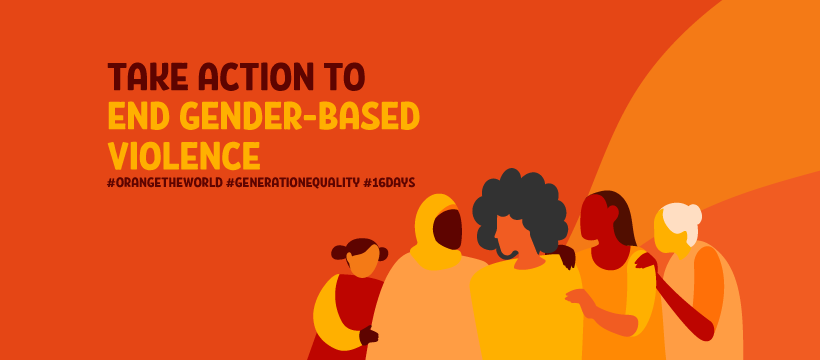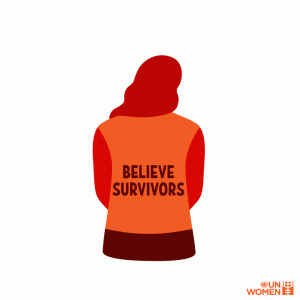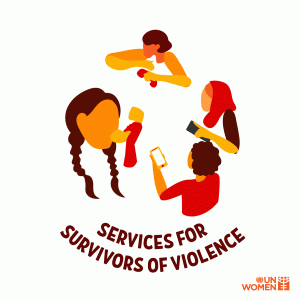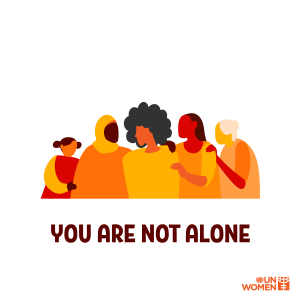Domestic abuse can affect anyone.
However figures from the Office for National Statistics show women are more likely to experience abuse than men.
To mark the International Day for the Elimination of Violence against Women, 25 November, and the #16days of activism that follow we look at some ways you can make a difference to help end violence against women.
1. Listen to and believe survivors
When a woman shares her story of violence, she takes the first step to breaking the cycle of abuse. It’s on all of us to give her the safe space she needs to speak up and be heard. Survivors of violence are speaking out more than ever before, and everyone has a role to play to ensure they can have justice.
Don’t say, “Why didn’t she leave?”
Do say: “We hear you. We believe you. We stand with you.
2.Teach the next generation and learn from them
We provide programmes for young people affected by domestic abuse and believe in educating and offering our support to prevent the cycle of domestic violence perpetuating in their own families and relationships.
The examples we set for the younger generation shape the way they think about gender, respect and human rights. Start conversations about gender roles early on, and challenge the traditional features and characteristics assigned to men and women. Point out the stereotypes that children constantly encounter, whether in the media, on the street or at the school, and let them know that it’s OK to be different. Encourage a culture of acceptance.
3.Know who to turn to. Find out what services are in your local area
Services for survivors are essential services. Find out what services are available across Kent by visiting www.domesticabuseservices.org.uk
Other useful contacts:
National Domestic Abuse Helpline 24hrs 0808 2000 247
Men’s Advice Line (Respect) 0808 801 0327
Support for honour based abuse/ arranged marriage (Karma Nirvana) 0800 599 9247
LGBT+ Helpline (Galop) 0800 999 5428
Deaf Helpline (SignHealth ) 0207 3947 2601 or text 07970 350666
4.Understand consent and stand against rape culture
Rape culture is the social environment that allows sexual violence to be normalized and justified, fuelled by the persistent gender inequalities and attitudes about gender and sexuality. Naming it is the first step to dismantling rape culture.
Freely given, enthusiastic consent is mandatory, every time.
Rather than listening for a “no,” make sure there is an active “yes,” from all involved. Adopt enthusiastic consent in your life and talk about it.
Phrases like “she was asking for it” or “boys will be boys” attempt to blur the lines around sexual consent, placing blame on victims, and excusing perpetrators from the crimes they have committed
5.Learn the signs of abuse and how you can help
There are many forms of abuse and all of them can have serious physical and emotional effects. If you’re concerned about a friend who may be experiencing violence or feels unsafe around someone, review these signs and learn about the ways to help them find safety and support.
6.Start a conversation
People often feel awkward about ‘taking sides’ and try to keep out of a situation, believing it is not really any of their business. Friends and family may think that they are being ‘neutral’, but the abuser usually takes this as evidence that their behaviour is acceptable. In addition, an abused person can easily interpret the ‘neutrality’ of those closest to them as blame for the situation.
Violence against women and girls is a human rights violation that’s been perpetuated for decades.
It’s pervasive, but it’s not inevitable, unless we stay silent. Don’t wait for your abused friend to tell you about the situation. Bring the subject up yourself when you are in a safe location.
Show your solidarity with survivors and where you stand in the fight for women’s rights by oranging your social media profile for the 16 Days of Activism starting 25 November – you can download banners for Facebook and Twitter here
7.Fund women’s organizations
Supporting local organizations that empower women, amplify their voices, support survivors, and promote acceptance of all gender identities and sexualities.
If you would like to arrange fundraising for Rising Sun, set up a regular gift or make a one off donation contact Judith: judith@risingsunkent.com
8.Hold each other accountable
Violence can take many forms, including sexual harassment in the workplace and in public spaces.
Take a stand by calling it out when you see it: catcalling, inappropriate sexual comments and sexist jokes are never okay.
Create a safer environment for everyone by challenging your peers to reflect on their own behaviour and speaking up when someone crosses the line, or by enlisting the help of others if you don’t feel safe.



